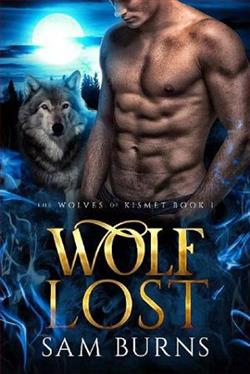Martial Peak Reviews
Sam Burns' Wolf Lost is a compelling addition to the ever-expanding universe of paranormal romance, offering a fresh take on the werewolf trope by weaving together themes of trauma, healing, and the search for belonging. The novel's blurb sets the stage for a gripping narrative, introducing us to two protagonists whose lives are marked by loss and the quest for a new beginning.
The story centers around Sawyer Holt, an omega on the run from a dangerous political situation within his pack. His father’s murder and the subsequent rise of a power-hungry alpha have left him with no choice but to flee. On the other hand, we have Dez Sullivan, an alpha who is grappling with the physical and psychological scars of his last mission in Afghanistan. The juxtaposition of these two characters—one running from his past and the other trying to make peace with it—creates a dynamic and emotionally charged narrative.
One of the most striking aspects of Wolf Lost is its exploration of trauma and recovery. Dez's struggle with PTSD and his physical injuries are portrayed with sensitivity and depth. Burns does not shy away from depicting the harsh realities of living with trauma, and this adds a layer of authenticity to the character. The tremor in Dez's hand and his nightmares are not just plot devices; they are integral to his character development and his journey towards healing. This portrayal is reminiscent of the nuanced character work seen in books like The Night Circus by Erin Morgenstern, where the characters' personal struggles are intricately woven into the fabric of the story.
Sawyer's character, on the other hand, embodies resilience and the fight for autonomy. His refusal to be used as a pawn in a political game is a testament to his strength and determination. The chemistry between Sawyer and Dez is palpable from their first meeting, and Burns skillfully builds their relationship with a balance of tension and tenderness. Their connection is not just physical but emotional, as they find solace and understanding in each other’s presence. This aspect of the story is reminiscent of the emotional depth found in Red, White & Royal Blue by Casey McQuiston, where the romance is as much about personal growth as it is about love.
The setting of Colorado adds a rich backdrop to the story, with its rugged landscapes mirroring the internal struggles of the characters. The search for a new pack and a sense of belonging is a recurring theme throughout the novel. Both Sawyer and Dez are in search of a community that accepts them for who they are, flaws and all. This theme of finding one's place in the world is universal and resonates with readers on a deep level.
Burns' writing style is both engaging and evocative, drawing readers into the world she has created with vivid descriptions and well-paced storytelling. The dialogue is sharp and often laced with humor, providing moments of levity amidst the tension. The author’s ability to balance action, romance, and character development is commendable, making Wolf Lost a well-rounded and satisfying read.
In terms of comparison, Wolf Lost shares thematic similarities with other works in the genre, such as Wolfsong by T.J. Klune, which also explores themes of identity and belonging within a supernatural context. However, Burns distinguishes her work by focusing on the psychological aspects of her characters, offering a more introspective take on the werewolf narrative.
Overall, Wolf Lost is a captivating read that will appeal to fans of paranormal romance and those who appreciate stories of personal growth and healing. Sam Burns has crafted a tale that is both heartwarming and thrilling, with characters that linger in the mind long after the last page is turned. Whether you are a long-time fan of the genre or a newcomer, this novel offers a fresh perspective that is both entertaining and thought-provoking.
In conclusion, Wolf Lost is more than just a romance; it is a story about overcoming adversity, finding strength in vulnerability, and the transformative power of love. It is a testament to the resilience of the human spirit and the enduring quest for a place to call home.























Reviews 0
Post a Reviews: